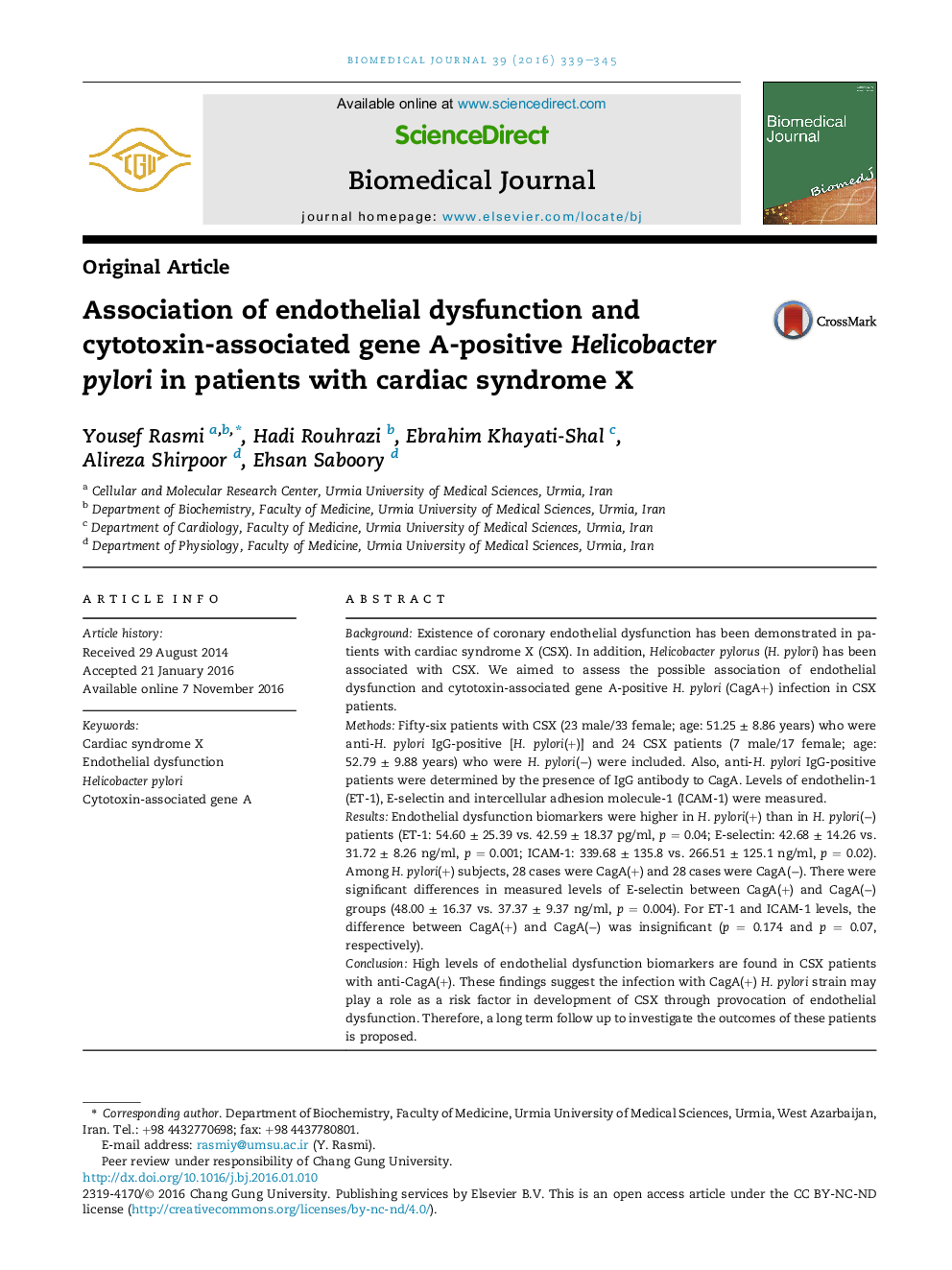| کد مقاله | کد نشریه | سال انتشار | مقاله انگلیسی | نسخه تمام متن |
|---|---|---|---|---|
| 5524646 | 1401427 | 2016 | 7 صفحه PDF | دانلود رایگان |

BackgroundExistence of coronary endothelial dysfunction has been demonstrated in patients with cardiac syndrome X (CSX). In addition, Helicobacter pylorus (H. pylori) has been associated with CSX. We aimed to assess the possible association of endothelial dysfunction and cytotoxin-associated gene A-positive H. pylori (CagA+) infection in CSX patients.MethodsFifty-six patients with CSX (23 male/33 female; age: 51.25 ± 8.86 years) who were anti-H. pylori IgG-positive [H. pylori(+)] and 24 CSX patients (7 male/17 female; age: 52.79 ± 9.88 years) who were H. pylori(â) were included. Also, anti-H. pylori IgG-positive patients were determined by the presence of IgG antibody to CagA. Levels of endothelin-1 (ET-1), E-selectin and intercellular adhesion molecule-1 (ICAM-1) were measured.ResultsEndothelial dysfunction biomarkers were higher in H. pylori(+) than in H. pylori(â) patients (ET-1: 54.60 ± 25.39 vs. 42.59 ± 18.37 pg/ml, p = 0.04; E-selectin: 42.68 ± 14.26 vs. 31.72 ± 8.26 ng/ml, p = 0.001; ICAM-1: 339.68 ± 135.8 vs. 266.51 ± 125.1 ng/ml, p = 0.02). Among H. pylori(+) subjects, 28 cases were CagA(+) and 28 cases were CagA(â). There were significant differences in measured levels of E-selectin between CagA(+) and CagA(â) groups (48.00 ± 16.37 vs. 37.37 ± 9.37 ng/ml, p = 0.004). For ET-1 and ICAM-1 levels, the difference between CagA(+) and CagA(â) was insignificant (p = 0.174 and p = 0.07, respectively).ConclusionHigh levels of endothelial dysfunction biomarkers are found in CSX patients with anti-CagA(+). These findings suggest the infection with CagA(+) H. pylori strain may play a role as a risk factor in development of CSX through provocation of endothelial dysfunction. Therefore, a long term follow up to investigate the outcomes of these patients is proposed.
Journal: Biomedical Journal - Volume 39, Issue 5, October 2016, Pages 339-345